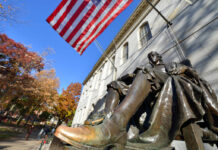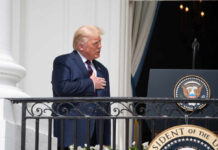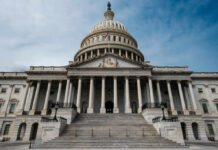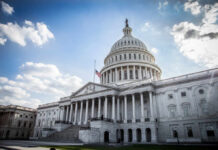
The saga around poet Amanda Gorman’s book, allegedly banned in a Florida school, highlights the predisposition of certain media outlets to let sensationalist narratives prevail over facts. These liberal media outlets and Gorman herself stood on the premise that a Florida school had banned her book, “The Hill We Climb,” which includes the poem she recited at President Joe Biden’s inauguration. Yet, despite the ensuing uproar, the accusations proved entirely groundless.
The story began with Daily Salinas, a mother of two schoolchildren, complaining about the suitability of Gorman’s book and four other titles for elementary students. In response, the school and its review committee moved these books to a different section in the library, deemed more fitting for middle school students. The Miami-Dade County Public Schools spokesperson, Elmo Lugo, clarified, “No literature (books or poem) has been banned or removed.”
Liberal media falsely claimed Florida school banned book from Biden inauguration poet. Now that the truth is out, dozens of large outlets still refuse to correct the record. https://t.co/VCtA1EADSJ https://t.co/U2Jt4OWawu
— Millennial Conservative ™️ (@Milennial_con) May 26, 2023
Instead of rectifying the misrepresentation, multiple media outlets and organizations clung to the deceptive narrative. The Daily Beast, Associated Press, Variety, the Guardian, Rolling Stone, and People magazine were among those that not only propagated the false claim but also failed to amend their misleading reports even after the school’s clear-cut clarification. The truth remained: The book was not banned but moved to a different section, remaining available to all students.
The liberal corporate media’s attempt to vilify Florida Gov. Ron DeSantis (R) also fell flat. Despite claims that he was somehow involved in this alleged “ban,” there was no evidence to support such allegations. Moreover, Snopes, a fact-checking website, acknowledged that DeSantis had no part in the relocation of the book or the school’s decision.
Adding fuel to the misinformation, Gorman herself took to Twitter, stating her book had been “banned.” Then, as the truth unfolded, she engaged in semantic acrobatics, redefining a school book ban as “any action taken against a book that leaves access to a book restricted or diminished.”
Several outlets further tainted the truth by suggesting that access to the book was restricted, contrary to the school’s statement that the book was available to all students. Among these were ABC News, Politico, New York Times, and NPR, with some subtly altering their headlines but persisting with the misleading narrative.
Publications like Variety, Teen Vogue, and Glamour continued to run their original articles filled with false claims, unchecked by the truth. Even when the facts were unambiguous, the attempt to manipulate the narrative continued. As the school system made it clear the book was moved to a different area but remains accessible to all students, it became evident that some in the media preferred an enticing narrative to factual reporting.
The saga demonstrated how unchecked narratives can shape public perception, even in the face of hard facts. As news consumers, the onus is on us to question, scrutinize, and seek the truth behind the headlines. The true essence of journalism lies not in promoting an agenda but in providing accurate, unbiased reporting that serves the public’s right to know. It’s time we demand no less from our media.
































